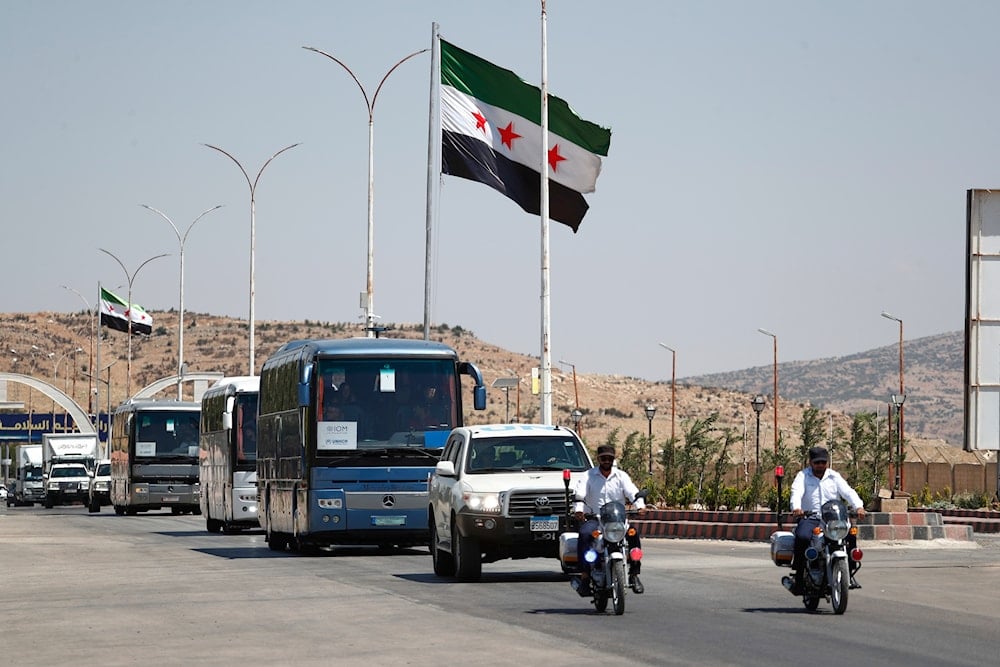317 killed in 280 criminal offenses since Syrian regime's fall: SOHR
Areas under the new Damascus government's control saw a continued spread of criminal activity and unsolved murders across various provinces
-

A convoy of buses, carrying Syrian refugees returning home from Lebanon, arrives at the Syrian border crossing point in Jdeidet Yabous, Syria, Tuesday, July 29, 2025 (AP)
280 criminal offenses occurred between the fall of former President Bashar al-Assad's regime on December 8, 2024, and September 2025, claiming the lives of 317 people, including 246 men, 48 women, and 23 children, the Syrian Observatory for Human Rights reported.
The observatory further clarified that areas under the Damascus government's control saw a continued spread of criminal activity and unsolved murders across various provinces, amid a conspicuous absence of both security and judicial oversight.
These crimes were distributed by province as follows: 25 in Damascus; 24 in Damascus countryside; 20 in Aleppo; 13 in Homs; 32 in Hama; 20 in Latakia; 29 in Deir Ezzor; 30 in Idlib; 55 in Daraa; 8 in Tartous; 21 in Sweida; two in al-Raqqa; and one in al-Quneitra.
This report breaks down the crimes in detail by month, focusing on the victims' sex, age, and the geographic differences in incident rates. Its goal is to provide a clear picture of the security situation and to help human rights organizations fully understand the scale of the violations and their impact on civilians.
From the fall of the regime until the end of 2024, the Syrian Observatory for Human Rights documented 10 criminal offenses that killed 16 people: 13 men and 3 women, across the provinces of Damascus, Damascus countryside, Aleppo, Homs, Hama, Latakia, and Idlib.
"These figures reveal the persistent spread of criminal activity in Syria, highlighting a significant failure in security and judicial oversight and leaving civilians exposed to direct confrontation with violence and chaos," the SOHR stated.
To conclude its statement, the observatory emphasized the urgent need to strengthen public safety measures, deliver justice, and protect civilians' rights across all provinces to reduce human casualties and restore public security.

 2 Min Read
2 Min Read









